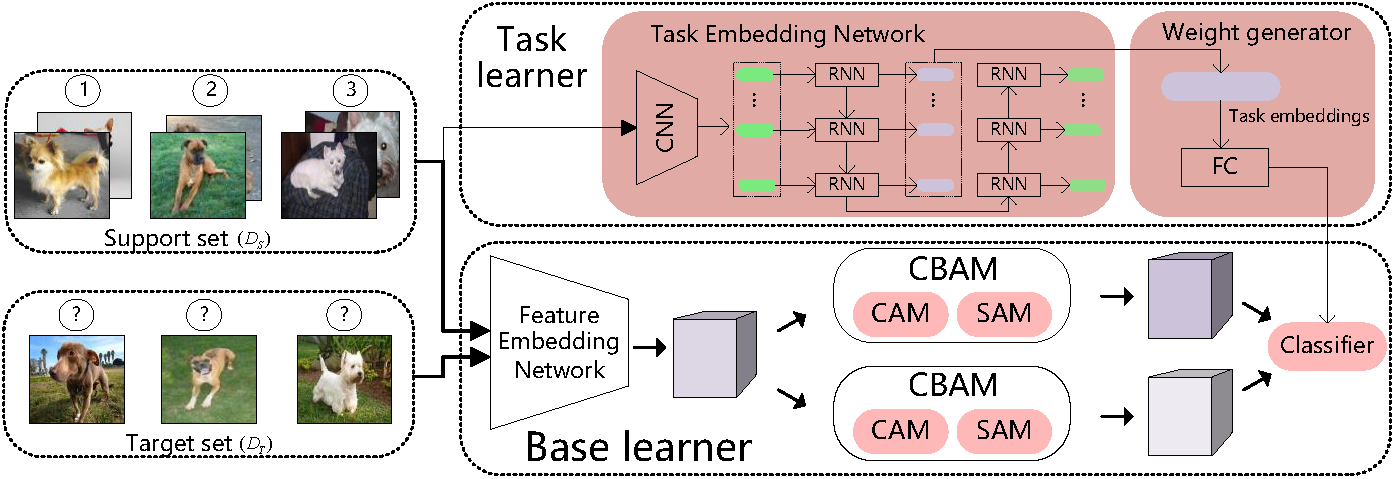
本文提出了一种多注意元学习(MattML)方法,该方法利用了基学习器和任务学习器的注意力机制来捕获具有判别性的物体部件。更具体地说,基学习器包括一个特征嵌入网络,两个卷积注意力模块CBAM和一个分类器。通过融合卷积特征的通道和空间信息,两个CBAM可以专注于多样化且内容丰富的物体部件。任务学习器在自动编码框架下使用循环编码器和循环解码器学习任务表示。权重生成器使用任务表示来参加基学习器中的分类器权重初始化。这样分类器获得与任务相关的敏感初始化。利用基于梯度的元学习方法来调整两个CBAM和分类器的参数来进行适应,从而使更新后的基学习器可以根据当前的小样本任务自适应关注具有判别性的物体部件。
Abstract
The goal of few-shot image recognition is to distinguish different categories with only one or a few training samples. Previous works of few-shot learning mainly work on general object images. And current solutions usually learn a global image representation from training tasks to adapt novel tasks. However, fine-gained categories are distinguished by subtle and local parts, which could not be captured by global representations effectively. This may hinder existing few-shot learning approaches from dealing with fine-gained categories well. In this work, we propose a multi-attention meta-learning (MattML) method for few-shot fine- grained image recognition (FSFGIR). Instead of us- ing only base learner for general feature learning, the proposed meta-learning method uses attention mechanisms of the base learner and task learner to capture discriminative parts of images. The base learner is equipped with two convolutional block attention modules (CBAM) and a classifier. The two CBAM can learn diverse and informative parts. And the initial weights of classifier are attended by the task learner, which gives the classifier a task-related sensitive initialization. For adaptation, the gradient-based meta-learning approach is em- ployed by updating the parameters of two CBAM and the attended classifier, which facilitates the up- dated base learner to adaptively focus on discriminative parts. We experimentally analyze the differ- ent components of our method, and experimental results on four benchmark datasets demonstrate the effectiveness and superiority of our method.

Yaohui Zhu, Chenlong Liu, Shuqiang Jiang. “Multi-attention Meta Learning for Few-shot Fine-grained Image Recognition”. International Joint Conference on Artificial Intelligence --Pacific Rim International Conference on Artificial Intelligence (IJCAI-PRICAI), 2020.
Download: